Robin is in all of us
November 18, 2014
At the well attended and very well enjoyed “Subversion and Rebellion: Ballads and Storytelling: the case of Robin Hood” talk yesterday evening, one of our panellists Pippa Hennessey wrote the following fantastic poem in response to questions regarding the existence of Robin Hood and why the stories continue to be retold; By Pippa Hennessy, …
Riot 1831 talk and after hours viewing event
October 27, 2014
By Associate Professor Richard Gaunt, Department of History Nottingham City Museums and Galleries has recently launched its new Riot1831 Gallery at Nottingham Castle. Through a combination of new technology, items from the museum’s collection and loan items from other repositories, the events of Monday 10 October 1831 – when the Castle was burned down by …
Hammer of Defiance
October 22, 2014
By Andy Barrett, Excavate We have started rehearsals on our re-working of The Hammer of Defiance, which tells of an early Luddite attack, in Sutton in Ashfield in 1811, and the subsequent trial in 1812, of Benjamin Hancock and six others. The original performances of this community play, as all of the shows that Excavate …
Three FREE events at D.H. Lawrence Heritage for this year’s Festival of Humanities
October 20, 2014
By Carolyn Melbourne, D.H. Lawrence Heritage, Broxtowe Borough Council Writers go in and out of fashion but D.H. Lawrence remains relevant. Described as ‘The prophet of the Midlands’, there is a visionary aspect to his writing; his attitudes to industry, capitalism, nature and of course sex were out of kilter for his own time but now …
The Luddites
October 15, 2014
By Professor John Beckett, Department of History ‘Luddite’ is a term we use today of people (perhaps including ourselves) who resist the introduction of new technology or machinery, preferring things to continue to be done as they always have been. The Luddite movement, between 1811 and 1819, was not quite so clear cut. Luddites, followers …
Human Being
October 13, 2014
By Professor Stephen Mumford, School of Arts To be human is to be curious. We naturally want to know. And we want to know not just that which we can put to some use, or that which can be known with scientific demonstrability. We are inquisitive also about the mysteries of existence. We still want …
The burning of the castle
October 10, 2014
By Professor John Beckett, Department of History On 10 October 1831 a large crowd gathered in Nottingham and went to the Castle, which they broke into and set on fire. The original medieval castle had been demolished in the 1650s, and replaced by a Renaissance palace which was and is known, confusingly, as the castle. …
D. H. Lawrence in Nottingham
October 2, 2014
By Dr Andrew Harrison, School of English A banner hanging on some buildings adjacent to Nottingham Train Station contains images of three prominent Nottingham authors beneath the headline: ‘Our Rebel Writers’. The writers in question are, of course, Lord Byron, D. H. Lawrence and Alan Sillitoe. All three men have tangible links to venues in …
Lawrence and Mexico
October 1, 2014
By Annalise Grice, School of English Many people are surprised to learn that D. H. Lawrence travelled all over the world during the course of his short life. New Mexico was particularly significant to Lawrence: in a 1928 essay he commemorated his time there as ‘the greatest experience from the outside world that I have …

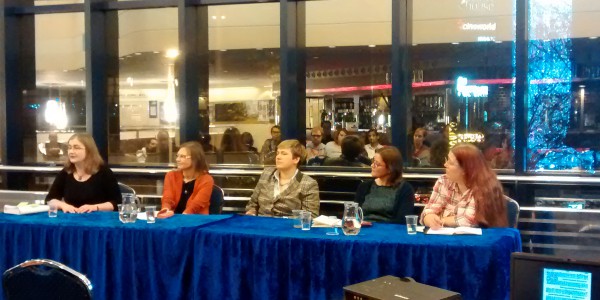
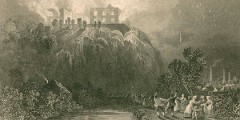
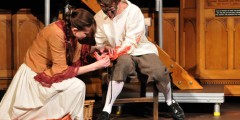
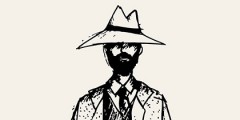
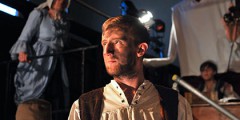
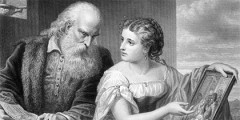
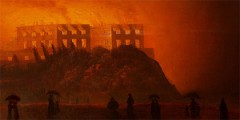

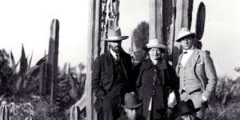
Recent Comments